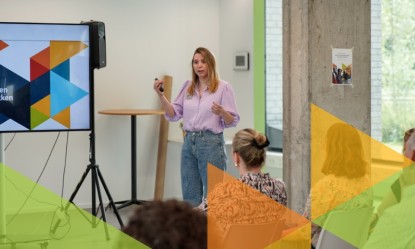Agenda

Lees meer Inhousedag 22 oktober 2025
Ben jij starter of junior onderzoeker (max. 2 jaar ervaring) en wil je jouw onderzoeksvaardigheden inzetten voor een betere werkomgeving? Het CFPB (Center for People and Buildings) in Delft zoekt een junior onderzoeker. Ontdek wat dit betekent tijdens onze inhousedag op woensdagmiddag 22 oktober in Delft.
Lees meer

Lees meer CFPB Kenniskring IV
Voor onze deelnemers aan het programma Werk in Transitie organiseren wij 4x per jaar een kenniskring.
Lees meer